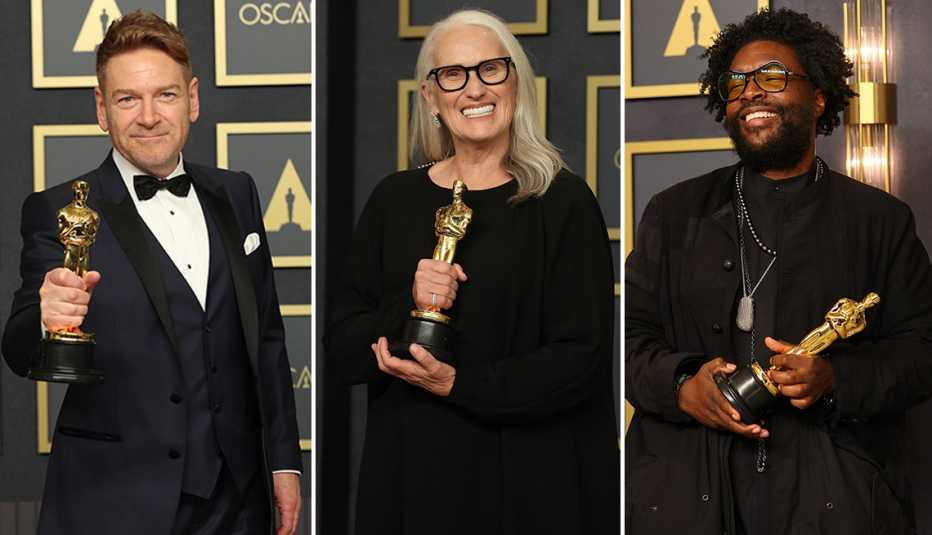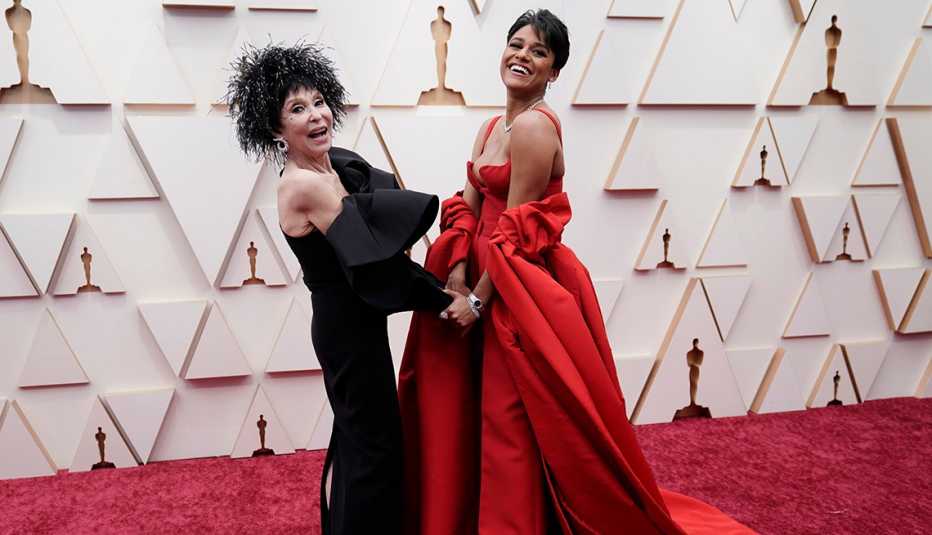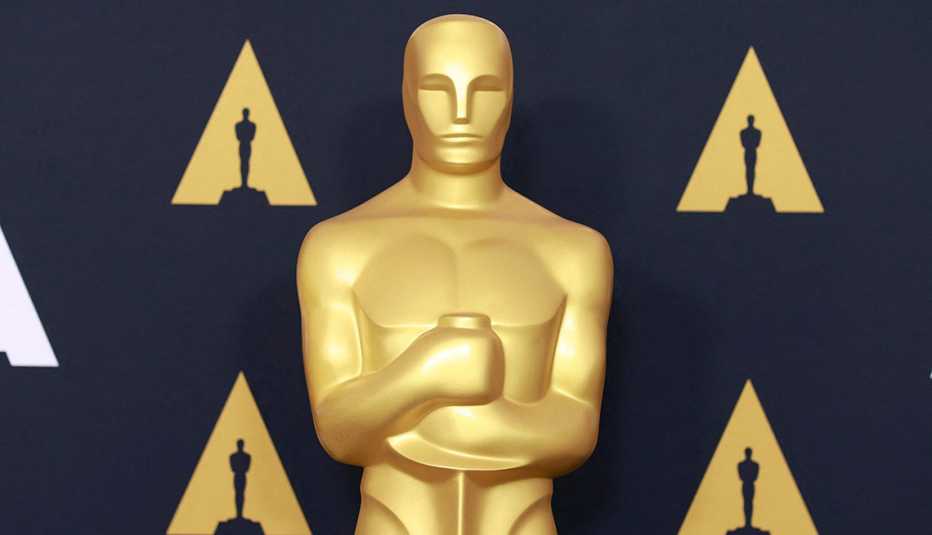Staying Fit


Grownups fared well at the Oscars Sunday night — until Will Smith slapped Chris Rock onstage. But that news-making incident doesn’t change that seven moviemakers over 50 took home major Academy Awards. It was a night of triumph for best supporting actor winner Troy Kotsur, 53; best original screenplay winner Kenneth Branagh, 61; best director Jane Campion, 67; Cruella’s best costume design winner Jenny Beavan, 71; and Summer of Soul’s best documentary winner Questlove (Ahmir Khalib Thompson, 51). Dune director Denis Villeneuve, 54, was the biggest winner, with six Oscars, including cinematography and production design.
Smith, 53, won Best Actor for King Richard, and apologized to the Academy for his reaction to a joke about his wife. The Academy issued a statement saying it does not condone violence.


AARP Membership— $12 for your first year when you sign up for Automatic Renewal
Get instant access to members-only products and hundreds of discounts, a free second membership, and a subscription to AARP the Magazine.
Celebrating a world grownups remember
The 2022 Oscars proved that smart, arty movies are particularly appealing to a 50-plus audience and that a grownup-driven blockbuster like Dune can earn the industry’s top honors. But they also proved that the legacy of immortal films our generations remember well still endures. Fifty years after The Godfather’s Oscar win, Francis Ford Coppola, 82, was honored alongside his stars Al Pacino, 81, and Robert De Niro, 78. And 50 years after her Oscar-winning turn in Cabaret, Liza Minnelli, 76, joined Lady Gaga to present the best picture award to CODA. Kevin Costner, 67, Hollywood’s most successful maker of Westerns, eloquently put Campion’s The Power of the Dog in the historical context of How the West Was Won, the Western epic that, Costner said, “fired my imagination and captured my heart” in 1963. She is one grownup who upholds that proud tradition.
The emotional and historic wins of CODA
The most inspiring winner of the night was Troy Kotsur, 53, who won best supporting actor in the extraordinarily heartwarming best picture, CODA, whose title stands for “child of deaf adults.” Kotsur is the second deaf actor to win an Oscar; the first was his CODA costar Marlee Matlin, 56, who won best actress 35 years ago for Children of a Lesser God. Minari’s 2021 Oscar winner Yuh-Jung Youn, 74, charmingly presented Kotsur the award, announcing it first in sign language, then verbally. Oscar pundit Daniel Montgomery quipped, “A Yuh-Jung Youn and Troy Kotsur rom-com would get more young viewers than tonight’s Oscars.” The interpreter translating Kotsur’s acceptance speech for the audience teared up, and so did the audience, many of whom were applauding silently with sign language (by waving their hands).
Streaming platforms win big
CODA was also a big win for Apple TV+, the first streaming service to win best picture. But rival streamer Netflix also fielded a big winner, Campion, whose The Power of the Dog was her comeback film, 28 years after her first Oscar for writing The Piano. And Amazon Prime's Belfast took the screenwriting prize with Kenneth Branagh. Some thought the rise of streaming entertainment would threaten moviemaking, but in fact it helps keep grownup cinema alive and thriving.


Love between the generations — an AARP fave theme — was big last night
It was a big year for films with intergenerational themes, a great favorite of grownup viewers, including CODA, King Richard and West Side Story, whose best supporting actress winner Ariana DeBose thanked her castmate and “divine inspiration” Rita Moreno, 81, who won the Oscar for the same role in 1962. “I’m so grateful your Anita paved the way for tons of Anitas like me,” said DeBose.


































































More on Entertainment
Where to Watch This Year’s Oscar-Nominated Movies Online
From Netflix and HBO Max to Amazon Prime, Apple TV+, Disney+ and more, here are the links you need
The Best 'Best Picture' Oscar Winners of All Time (Ranked)
Get excited for awards night by screening these winners20 Stars Who Have Never Been Nominated for an Oscar
You'll never believe who's on this list